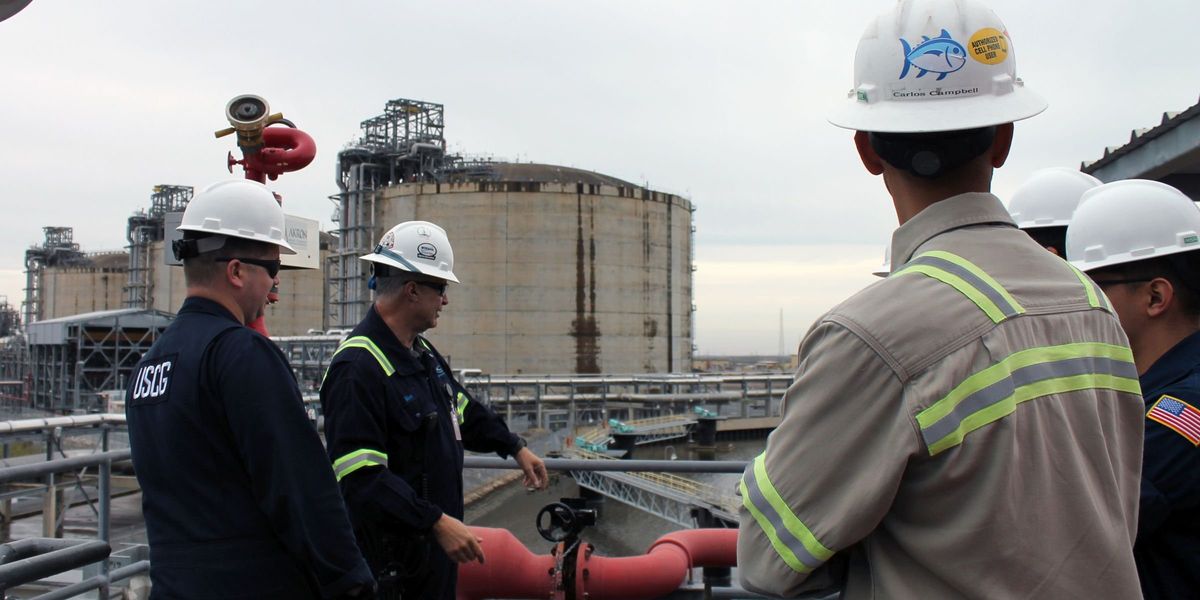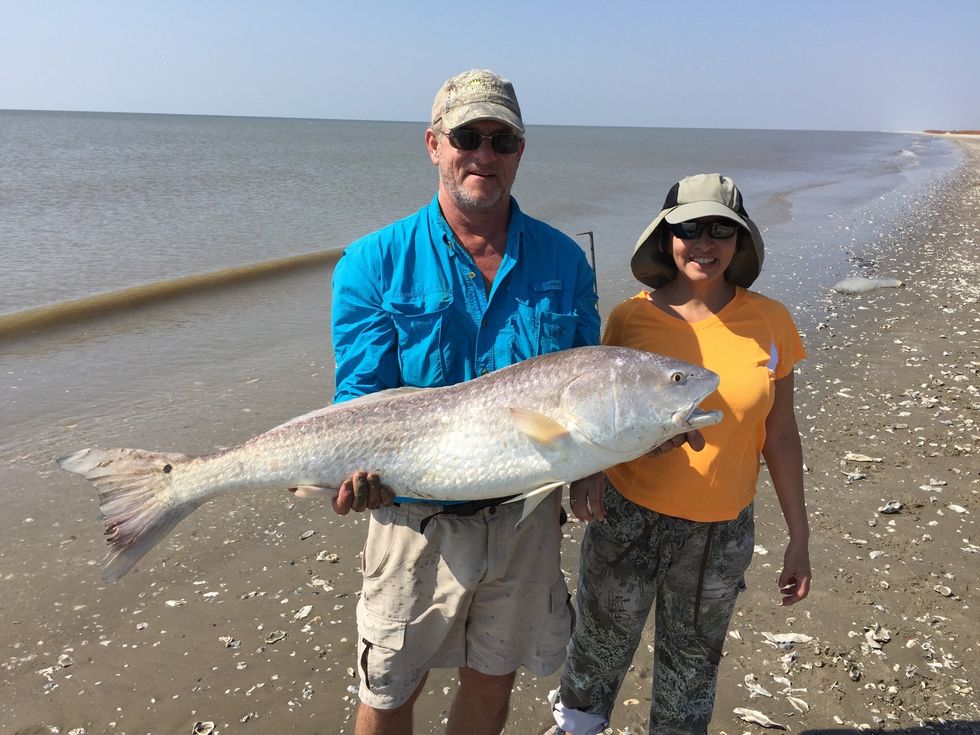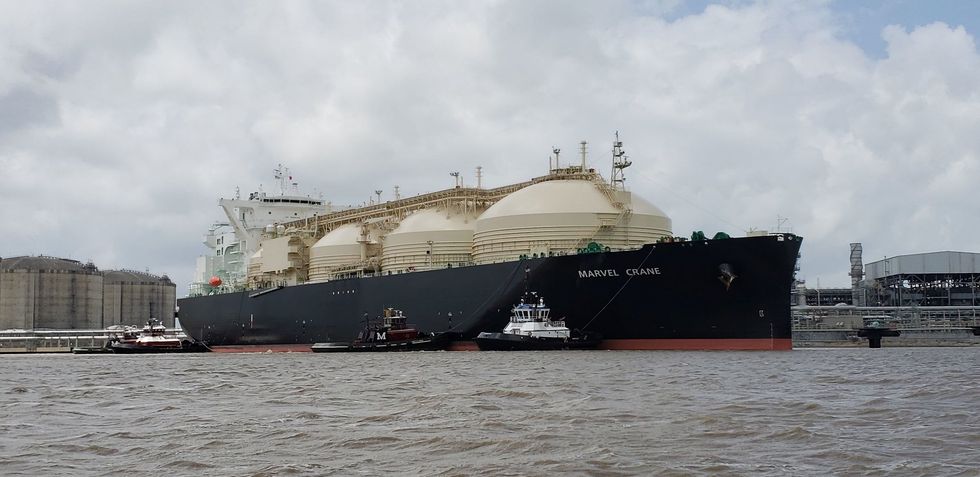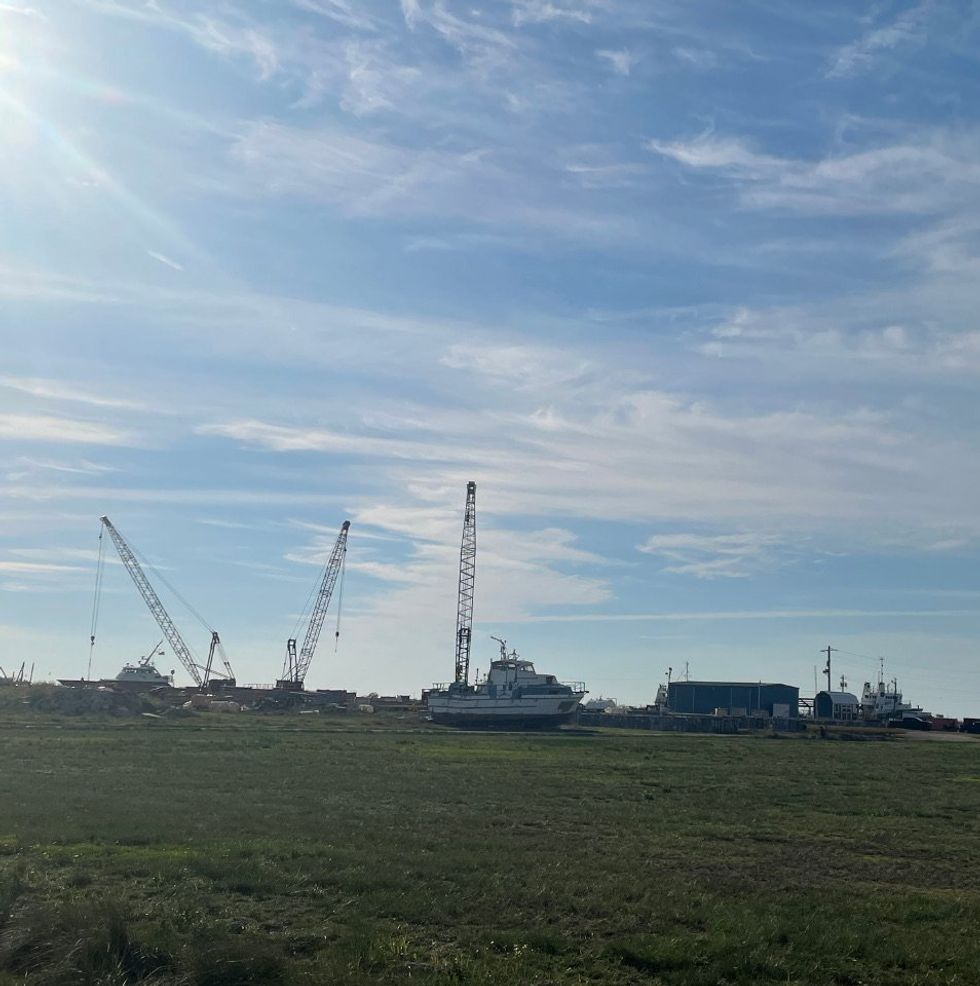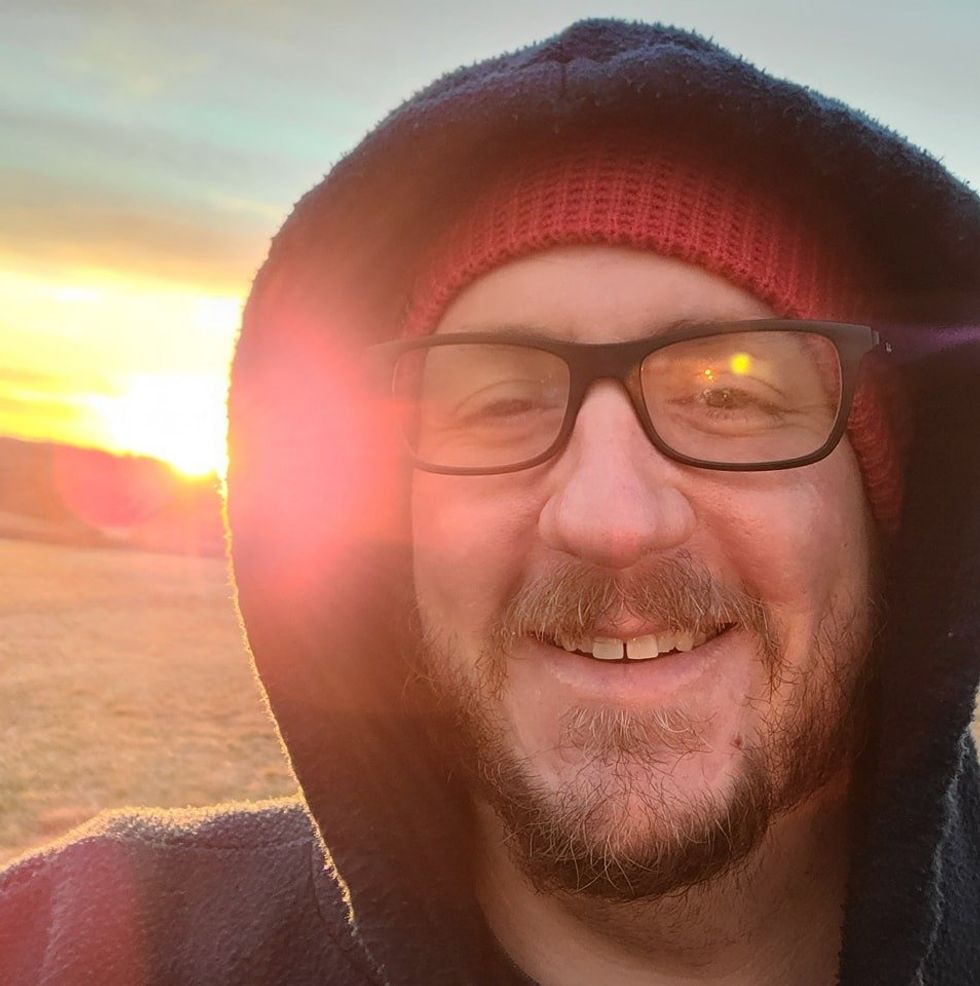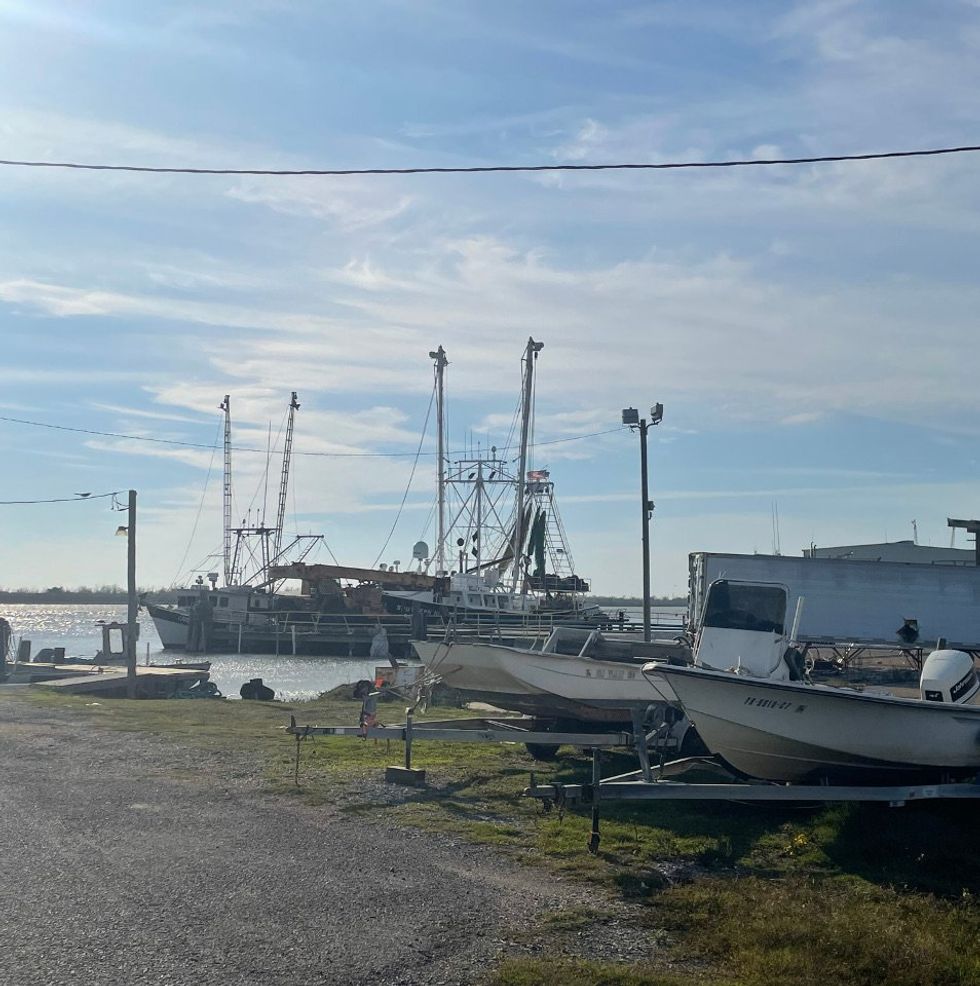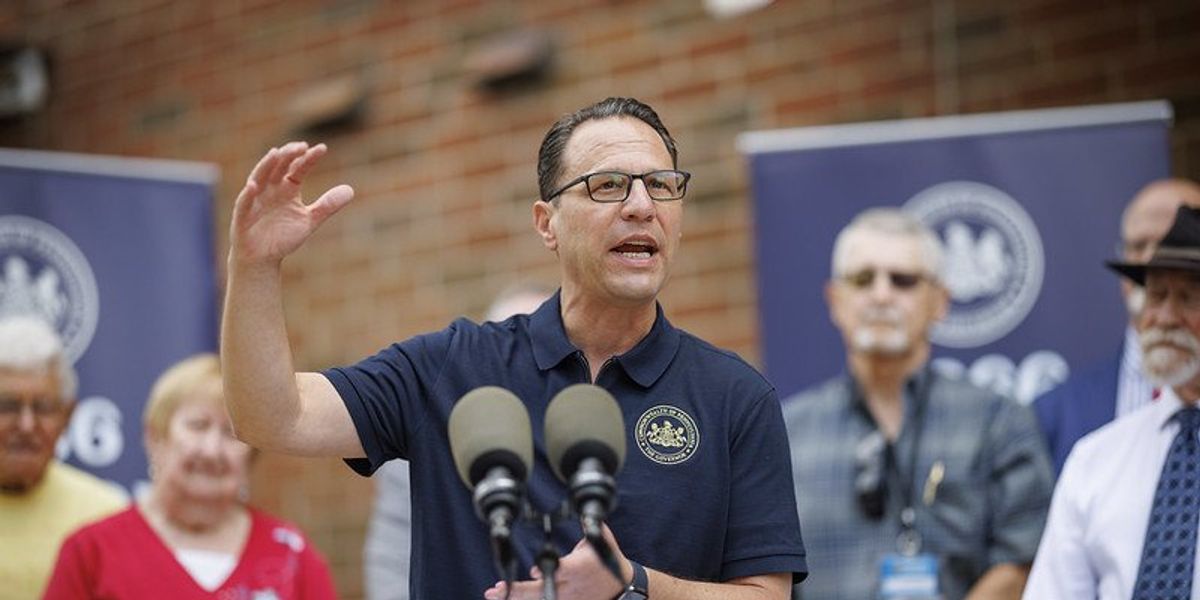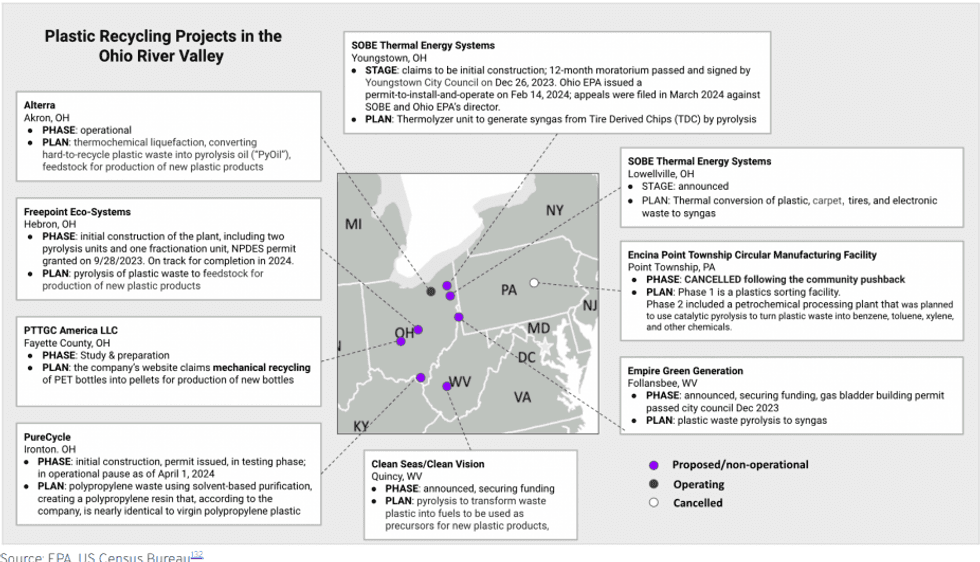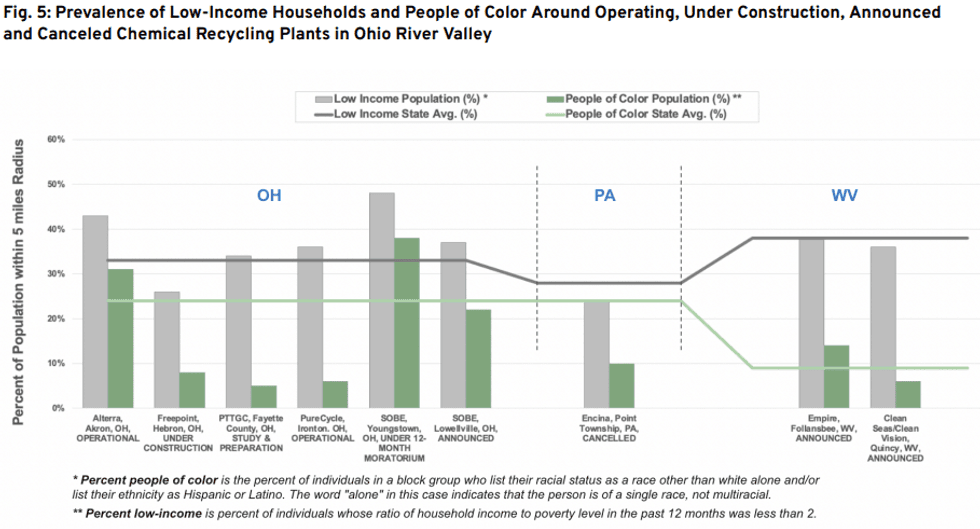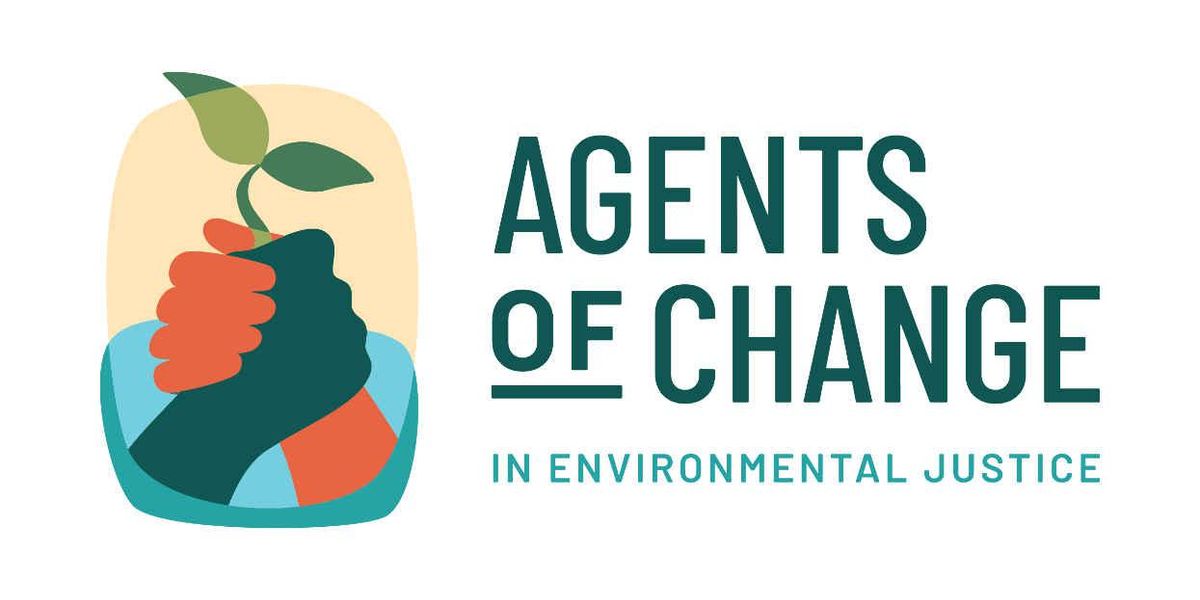
LISTEN: Daniel Carrión on the "heat stroke or go broke" dilemma
"People are trying to navigate: do I keep my home cool during the summer, or do I deal with that heat and potentially have the adverse health outcomes that come along with that."
Dr. Daniel Carrión joins the Agents of Change in Environmental Justice podcast to discuss inequities in global energy access and how an increase in heat waves is worsening this injustice.
Carrión, a postdoctoral fellow at the Icahn School of Medicine at Mount Sinai who will soon begin a position as assistant professor of Environmental Health Sciences at the Yale School of Public Health, talks about the imprint that New York City and Puerto Rico had on him growing up, energy poverty in rural Ghana, and the intersection of air pollution, extreme temperatures, and preterm births.
The Agents of Change in Environmental Justice podcast is a biweekly podcast featuring the stories and big ideas from past and present fellows, as well as others in the field. You can see all of the past episodes here.
Listen below to our discussion with Carrión, and subscribe to the podcast at iTunes, Spotify, or Stitcher.
Transcript
Brian Bienkowski
Today's guest hanging out with me is Dr. Daniel Carrion, a postdoctoral fellow at the Icahn School of Medicine at Mount Sinai and a current Agents of Change fellow. He will shortly be beginning a position as an Assistant Professor of Environmental Health Sciences at the Yale School of Public Health. Yale, you might have heard of that one. So proud of Daniel, very cool. Carrion discusses the imprint that New York City and Puerto Rico had on him growing up, energy poverty in rural Ghana, and the intersection of air pollution and extreme temperatures and preterm births. Enjoy.
Alright, I am really excited to be joined by Daniel Carrion. Daniel, how are you doing today?
Daniel Carrion
I'm doing well. How are you?
Brian Bienkowski
I'm doing great. And where are you at?
Daniel Carrion
I am in Harlem in New York City.
Brian Bienkowski
Awesome. You know, I always talk to people about where they're at and we devolve into talking about the weather. So I'm going to change and not ask about the weather. I don't even know if you're a coffee drinker, but if you are, what is your favorite coffee shop around there?
Daniel Carrion
Ooh, coffee shop around here. I guess it would be Double Dutch. There's a coffee shop down on Frederick Douglass and they make a really good dirty chai, which is way too expensive.
Brian Bienkowski
Awesome. It's called Double Dutch. Is that what it was?
Daniel Carrion
Yeah, Double Dutch.
Brian Bienkowski
Awesome. Next time I'm there I'm going to check that out. And speaking of New York City, that's a good place to start, because as a child you were, you were born there. You, you moved from the Bronx eventually to Westchester. And you've also spent some time in the summer with extended family in Puerto Rico and you said that the move from the Bronx to Westchester and these trips to Puerto Rico kind of opened your eyes to inequality and environmental health disparities. I wonder if you could tell us about that a little bit.
Daniel Carrion
Yeah, for sure. So, yeah, so when I was young, I grew up in the Bronx, my mom is from the Bronx. My dad is from Brooklyn. And, you know, that was, you know, very young ages. All I knew, we would take sometimes trips up to Westchester. And I thought that that was the countryside and then soon found out we were moving to Westchester when I was about 11. And you know, the Bronx where I lived, Pelham Parkway is the name of the neighborhood, it's a really nice area of the Bronx but it's called Pelham Parkway because there's a parkway that traverses kind of an East-West artery of the Bronx. And so it's one of the main ways of getting east and west in the Bronx. And it was a very loud place growing up. We were right next to Jacobi Medical Center, which is a trauma I medical center. And so, you know, I just always heard sirens growing up, you know, middle of the night, middle of the day, whatever it was. But then, you know, I was always surrounded also by traffic. I'd never realized how much traffic there was all the time where I was in the Bronx. And Pelham Parkway was, is really beautiful insofar as there, you know, there's kind of a green lawn that separates the parkway that was kind of my, my lawn growing up. That was my yard growing up until we went to Westchester. And kind of, as you mentioned, I saw kind of how different, different people's realities are. And so, in Westchester, you know, I was suddenly having playdates with kids who had in-ground pools or nannies or, or entire rooms full of their toys. And that just like wasn't a reality that I had ever thought of. Suddenly it was dark at night and it was quiet at night, which was actually very disquieting to me. I could not sleep well when we first moved there. And then, you know, throwing in there that you know, I'm New Yorican, which means I'm a New York based, New York raised Puerto Rican. And so, we would spend lots of holidays and summers with family in Puerto Rico. My parents couldn't afford summer camp, so it was easier to just send me for a summer to spend the summer with my abuelita in Puerto Rico. And that was amazing and wonderful, I love Puerto Rico. But at the same time Puerto Rico also has, you know, its own challenges. If Puerto Rico were a state, which it's not, but if it were a state, it would be by far the poorest state in the nation, you know, half the per capita income of Mississippi, the poorest state in the nation. And so, you know, that's visible. Poverty is visible in Puerto Rico. And at the same time, it's a wonderfully beautiful place and with beautiful people who somehow make things work and make things happen. So I feel like traversing all of those different geographies kind of made me start thinking about this, this inequality that we see on geography all the time.
Brian Bienkowski
I think it's funny that quiet was disquieting to you, that was the word you used.
Daniel Carrion
I know, as I was saying it I was like, yeah, that sounds weird.
Brian Bienkowski
No, there's something to that. When I travel, and stay in a larger city, which, I used to live in larger cities. The noise is the first thing that always strikes me. It's, I don't know how people, the construction and the traffic and…but if that's what you're used to, right. There, there is something to be said for that. And so, I want to probe this a little further. So you know, at that age, you know, you were talking about 11 was when you moved. When did you kind of work the environment into this. So it sounds like maybe inequality and kind of people's different realities and social, social structure was kind of creeping into your mind a little bit, but when did kind of environmental health and the environment come into play?
Daniel Carrion
Yeah, it probably wasn't until college, honestly. So I had friends in high school who liked to go for hikes and you know, do outdoorsy things. Which was again, all new to me. I didn't do that. I didn't even know how to swim when we left the Bronx. And so there were multiple things about the natural environment that were like, odd to me. And then I went to Ithaca College for undergrad and was literally just taking gen ed classes. I didn't know what I wanted to do for a major and I took an environmental science class and there was just like one little snippet at the very end of the environmental science class about environmental racism and environmental inequality. And so that kind of like, piqued my interest. I was like, what is that, what are we talking about here? And so somehow that, that little snippet strung me along for an entire major. And it wasn't until, I felt like I was doing lots of different things, but they didn't necessarily all make sense together. Right? I had a minor in economics and another minor in sociology. And I was an environmental studies major. And I was thinking a lot about inequality. And I was thinking a lot about the environment, but I wasn't finding ways to like pull them all together, until my very last semester. I took an environmental health and medicine class and that was when the light bulb went off. And I said, this is how it all ties together. This is how I can integrate all of these things. Thinking about the environment, health, and inequality.
Brian Bienkowski
So before we talk about how you took that, the next step into graduate school, I want to ask you what was a defining moment or event or anything like that, that shaped your identity, personally, professionally?
Daniel Carrion
Yeah, this is a tough one. It probably comes a little bit later in my trajectory, which is after college, after I did my Masters of Public Health, I got a job at Columbia running a summer pipeline program called the summer Public Health Scholars Program. And it was a brand new program for Columbia University funded by the CDC. And so I got to kind of like make this program from scratch. Like it was just a grant document, and they said, they handed me that grant document and they said, make this happen. And so, the idea of the program was to bring 50 historically minoritized students from around the country to Columbia to learn about health equity for a summer. And that was super exciting on multiple levels. One was that I was learning more about health equity by doing that. Two was, I was learning more about the beautiful diversity that is in this country. The students were amazing and taught me so much. And three, I had the best bosses. I don't, I don't feel like people get to say that enough. But I reported to four associate deans of diversity of the four schools of the medical center. And they were, you know, not only powerhouses, but they were so incredibly caring about me and my career. And so before this, I hadn't been thinking about a PhD. But at some point, they literally sat me down, it was kind of like a funny intervention, and they said, 'we've all talked and we've decided that you need to do a PhD.' And you know, I took it really seriously and clearly that's the, the journey I went on. So on multiple levels, it just kind of pulled together lots of pieces of me and I feel like pushed me to the next phase of my life and career.
Brian Bienkowski
That's really cool. It's always fun to be part of something too where you see youth get excited about something that they probably wouldn't, or get interested in something they probably wouldn't. I know, teachers probably have this feeling all the time but even if it's something as simple as you know, I take my nephews and nieces on hikes all the time, and having them see a bear or something in the wild, or a deer, and having that spark lit…let alone having them come to Columbia and learn about something kind of big and broad as health equity. I would imagine that's going to be a pretty fulfilling feeling.
Daniel Carrion
Yeah, I would echo that. My boyfriend is a teacher and so, I get to learn a lot about pedagogy and teaching from him. But one thing that I had always thought was kind of a cheesy thing that people would say was about how much teachers can learn from students. And that was when it actually happened for me, when I was running that program. I was like, oh my god, I'm learning so much from these kids.
Brian Bienkowski
Yeah, that's very cool. I feel that as a, as an editor, it's not a teacher student relationship, but kind of overseeing content and writing and learning so much from the writers that, including, including you and the people from Agents of Change, I'm learning so much from them and I feel very privileged in that kind of that same regard. So tell me where energy poverty kind of came into your work. So you're, you've talked about this kind of social inequality and learning about the environment a little bit, but this, this track of research that you followed, kind of really the thread is energy poverty, can you kind of explain what that is and where your work has involved that?
Daniel Carrion
Yeah, for sure. So I feel like I started thinking about energy poverty, because so much of my thinking as an environmental studies major was about climate change. And so, energy is really one of the biggest tensions that we run in thinking about climate and health, right. Because energy is, our choices historically, and energy are driving our climate crisis. And yet at the same time, we know that energy is fundamental to human health. And so when I went into grad school, I wasn't originally thinking that I was going to work on energy poverty, per se, but I was thinking that I was going to work on energy and security, which we'll probably come back to later. And thinking about exposures to extreme heat during the summer. But then actually, my advisor ended up leaving Columbia and there was another faculty member who was doing work on energy poverty in Ghana. And so I ended up working with him, he approached me and said, hey, would you like to work with me on my research agenda? Which was wonderful, and I ended up learning a lot about a topic I hadn't known much about. So with that as preamble, so energy poverty, kind of simply, is the idea that folks use solid fuels for their cooking or heating or other energy needs. So solid fuels in this context is like wood or dung or charcoal, or in some small cases actually coal itself. And so they use those types of fuel to cook for their, for their families, or themselves and potentially to warm their home depending on where you are in the world. And we're, you know, concerned about it on multiple levels, but from a health perspective, when folks burn those types of fuel, it makes a lot of air pollution. And so people are exposed to really, really high levels of air pollution as a consequence of burning these types of fuel.
Brian Bienkowski
So you kind of backed into this research in rural Ghana, it sounds like, through an advisor looking at solid fuel use for energy and household air pollution. First, set the scene for me a little bit. I've never been there. Tell me a little bit, did you get to go to Ghana, and if so, what was rural Ghana like?
Daniel Carrion
Yeah, I was really fortunate to have gone to Ghana about six or seven times during my doctoral program. And we would spend, or I would spend about two weeks at a time because it's, it's a journey to get there. So you know, to get there, you usually take two flights to get to Accra, which is the capital of Ghana. It's on the southern coast of West Africa. And from Accra, then we would take a regional flight to Kumasi, which is the, another city in the middle of the country. And then from Kumasi, would drive, I think three and a half, four hours to get to the area that we worked in, which was Kintampo. Ghana is a really beautiful country, and, you know, along that kind of geography from the coast, to the middle of the country, it gets pretty dry. And so in the middle of Ghana and Kintampo, and in Ghana in general, there are two major seasons, there's the wet season and the dry season. So it's really, really dry and hot for, you know, about half the year and then the other half of the year it's warm to hot and wet. It's, you know, it's, Kintampo is a place where there's a small kind of small city or township in the very middle, and then very quickly becomes rural from there. And so the guesthouse that I would stay at, you know, you would walk along a paved road for a little while and then you would walk along a dirt road for a little while. Pass a bunch of goats along the way, and then get to the guest house. So yeah, Ghana is, there were a lot of things that were really familiar about Ghana and a lot of things that were very different about Ghana, right. And so I think a lot of this, I think a lot about food. I feel like if I relived my academic experience, it would probably be in like, food ethnography or something like that. Um, but, you know, there were there are lots of foods and staple items that are actually very similar between Ghana and Puerto Rico. You can, you can very much see the African diaspora through a lot of the foods that people eat and the types of things that people do with their food. So, for example, plantains and cassava are two very big staples in Ghana and also in Puerto Rico. And so it was kind of funny. One of the first times I was there, someone said to me, this is a plantain, this is cassava. Like, yeah, yeah, I'm familiar. And yeah, it was, it was kind of funny in that way. And also other little things, like they eat a lot of soups and stews in Ghana, and which is also the case in Puerto Rico. And you know, it kind of gave me flashbacks to when I would go visit my family. In the middle of summer, it was so hot in Puerto Rico, and they were eating a big bowl of soup. And I remember thinking to myself as a kid, like, are you people crazy? It's so hot. And then you know, traverse, you know, many thousands of miles to another part of the world, and this is kind of a shared, a shared food journey that people do. So I thought that that was kind of funny and interesting.
Brian Bienkowski
Yeah, very cool. And tell me about some of the research you did while you were there. So you were looking at exposure to some of this indoor air pollution from, from burning solid fuels and possible interventions. So I'm assuming that's, that's ways to try to get people to not have these exposures. So what did you find and what did you do down there?
Daniel Carrion
Yeah, so this has been a research agenda for a lot of folks in the social sciences for a long time. And then folks in public health started thinking about these issues as well. And essentially, what we did was we were thinking about some of the interventions that actually the Ghanaian government was already doing in Ghana. So they have a program called the rural LPG Program, where they are going to communities, rural communities around the country, and they're freely distributing brand new stoves, gas burning stoves. And the idea there is to try and transition people off of solid fuels and on to these other gas stoves that produce less air pollution. And basically, what we did was we did an evaluation of that program and we found that if you just hand people a brand new stove, that doesn't necessarily mean that they're going to use that stove, right? It costs money to refill their gas tanks. And so you've kind of gotten rid of that upfront cost of the stove itself, but there's this repeating cost of the actual gas. And so one of my research studies was actually seeing, okay, they already have this intervention in place—can we modify the intervention a little bit so that it's more effective and it won't cost that much more for the government to implement. And so we tried a couple of different strategies to increase people's uptake of these stoves over time. So we did a direct delivery service. So rather than having to walk 40 kilometers or to get a ride 40 kilometers to refill their fuel. We set up a system where they got a direct delivery. And unfortunately, it didn't work. Because even though we had made it a lot easier on multiple levels, it didn't necessarily change the material conditions of the actual fuel costing money. And, you know, the, the wood for their burning, or their stoves, aside from their time, which is a big cost, but aside from their time, was free. And so that's a big hurdle for, for initiatives like this and research like this.
Brian Bienkowski
So this idea that energy use is harming certain groups and maybe not harming others as much is obviously not unique to Ghana, and it's also here in the US. And I was wondering if you could talk a little bit about your work on energy insecurity in the US and how current research and models may be missing these disparities among different groups.
Daniel Carrion
Yeah, absolutely. So I had mentioned this idea of energy and security before. And this was coined by one of my friends and mentors, Diana Hernandez, who has written about this idea of energy insecurity. And so energy insecurity, I think, is intuitive to a lot of people. You've probably heard about this idea of the 'heat or eat' dilemma, right. A lot of folks during the winter when it was, when it has been historically really cold, trying to decide, 'do I keep my heat turned up and keep my family warm? Or do I serve a nutritious meal?' Right? It's kind of a product of overall poverty. But then it's kind of how people navigate their circumstances of poverty. And so I thought that this was a really important paradigm to think about. But thinking about it from another perspective, thinking from my climate standpoint, of… climate change means that we are experiencing more heat waves. It means that people are dying from those heat waves and having a lot of other extreme health outcomes. And so I've kind of coined this idea of 'heat stroke or go broke' dilemma, where people are trying potentially to navigate, 'do I keep my home cool during the summer? Or do I kind of deal with that heat and potentially have the adverse health outcomes that come along with that?' And so that's kind of the, this energy insecurity paradigm that I've been thinking about with regard to climate now.
Brian Bienkowski
What are some ways some solutions, that term is so squishy, but I'm going to use it anyway, just paths forward when we think about energy insecurity in the US? There's a lot of people including yourself thinking about this. Are there examples of places that are addressing this? Or where can we look for some optimism on this front?
Daniel Carrion
Yeah, so I think that there are, as you mentioned, really amazing people doing work on this. There are folks who are thinking about trying to have a more just transition to clean energies for folks who experience energy insecurity or energy burden. So folks like Tony Reames, for example, who think about how do we lower the prices or get more equitable, equitable distribution of, you know, CFL light bulbs or LEDs that are more energy efficient. The upfront cost for those are more expensive than a regular light bulb, but on the backside, you end up saving more money. And that seems to be a common thread here, right, with the stoves as well in Ghana, that we oftentimes run this tension of these upfront costs for things being super expensive. But then you can win back or get back some of that in the long term. But that assumes that people have that upfront. And so we need systems to help people with some of these types of upfront costs. Another area that people are thinking about this is with, you know, rooftop solar, for example. A lot of those programs have relied on like rebate programs where you get money back on your taxes at the end of the year, but that means that you have to be able to afford the solar in the first place to get it onto your roof to then save money or energy. Um, so you know, there are folks who are thinking about these types of programs and more equitable distributions here. I would say another thing from my kind of climate perspective that folks at WE ACT for Environmental Justice, an environmental justice organization in New York City, have been thinking about trying to scale up the Low Income Home Energy Assistance Program. This is a program that has historically existed in the United States to help people with their wintertime heating bills. But we can use that same program to help people with their summertime cooling bills. But historically, it hasn't been used for that. And so I think we need to heed the call of environmental justice activists and try and think about some of these policy instruments that already exist to help poor families.
Brian Bienkowski
So I know in some of your current work, you've roped in perhaps the most vulnerable group and that is kind of the unborn. So you're looking at the intersection of air pollution, extreme temperatures, and preterm births. Walk me through this, this interaction of air pollution extreme temperatures and how it impacts the unborn.
Daniel Carrion
Yeah, so there's still a lot of research ongoing in this field and I think we have a lot of studies that tell us that, independently, air pollution and extreme temperatures both are associated with preterm birth, but it's more recently that we're thinking about these together, right. These are both ambient environmental exposures that lots of folks are exposed to, but we also know that there are big disparities in these exposures. So there's increasing research that shows that poor folks, people of color, historically redlined communities all experience higher summertime temperatures, and that's some of the work that I'm also doing right now. But then, we also know that preterm birth is one of the most stark and persistent health disparities that we have in this country, that Black women, for example, are 50% more likely to experience a preterm birth. And so, thinking about these two together, I think, is really important, or perhaps these three together is really important. I think we're trying to figure out what's actually going on in the biology that would make this be the case. So for example, there's some evidence that air pollution during a fetus's gestation may cause different types of abnormalities. And then you know, your body then would then lead to a preterm birth, for example. But that's all preliminary research, and people are still trying to figure out what's the kind of underlying biology that would make this happen. I think another interesting case here is that, you know, more recently, folks have actually found that air pollution actually makes it to the fetus. I think in the past, people thought that the placenta, the umbilical cord, was filtering some of that stuff out and so, so you know, the fetus is probably okay. But more recent research has found that air pollution is actually making it across the placenta. And so there are real potential biological mechanisms that would harm a fetus during gestation.
Brian Bienkowski
And all of this is so complex. I know when we write about chemical exposure for, for women and children, thinking about that, there's also all these other exposures beyond air pollution, so maybe it's food packaging exposure, and then you have this multiplier effect and the interaction. It's, it's also complex and then layer on top of that, of course, maybe heat stress and other things you're looking at. So definitely some complex research. And Daniel this, to just take a step back, you are doing so many cool things. Did you ever think you'd be doing this for a living, all this kind of different research and, you just have a lot going on and it's so, it's all so fascinating to me. Did you ever think you'd be doing this for a living?
Daniel Carrion
Yeah, that's a flat no. To be completely honest, I don't, I don't share this all the time. But you know, why not on a national podcast. When I was in high school, going into undergrad, my like, I thought that I was going to become a chorus teacher and at track coach. And then somehow, all of this happened. And so, so yeah, the short answer is no. I did not think that this was going to be my journey.
Brian Bienkowski
So the natural next question is, do you still sing and run?
Daniel Carrion
I don't sing as much as I would like to anymore. I do run a fair amount still though.
Brian Bienkowski
Awesome. So you're here obviously, we are talking because of the Agents of Change program and that is really geared toward science communication. And I'm just curious what your experience has been so far using SciComm to try to get your work out to lay folks, and what role do you think science communication, kind of for the broader public, will play as you move forward in your career?
Daniel Carrion
Yeah, I think science communication is really important, especially in an age where people can get all types of information at their fingertips. Whether or not it's scientifically vetted. And so it's really important for us to speak often and clearly to folks about the work that we're doing. And so I've had a little bit of experience here and there. So I did a study not too long ago about COVID related disparities, and ended up being on a documentary in Spain about some of that research, and then also getting interviewed on the radio here in New York. And it has been an amazing experience. It's also terrifying. We get no training in this, aside from initiatives like Agents of Change, which is one of the reasons why I jumped at this opportunity. Because, you know, people talk about it here and there about being important but it's not part of a grad curriculum. It's not part of the training oftentimes, and sometimes faculty, you know, will not necessarily even train their particular mentees in these things. So, science communication is super important. We need to be thinking about it more and I'm glad that opportunities like this exist to get our voices out there and let people know the work that we're doing.
Brian Bienkowski
On top of the lack of training, there's also just so many different aspects of, quote unquote, "the media." You know, speaking for a documentary versus a podcast versus a television hit where maybe you have 30 seconds to get your point across, versus a print reporter who will probably spend some time and let you talk about your research quite a bit. They're all just so vastly different, and I do, I do echo that there needs to be more training and I'm glad we're doing that, that work. And I want to pick up on something you said earlier before we wrap here, and that's when you, you said the term "heatstroke or go broke." And in terms of science communication, you know, those kinds of quick lines I feel like can do a lot of good and having people wrap their head around a concept that as we walk through it can be very complex. How much thought goes into something like that, a saying like that, is that something that. Or was it Dr. Hernandez, the other saying that I'm forgetting right now? Just walk me through that process a little bit because I think those kinds of statements can be really important.
Daniel Carrion
Yeah, no, thanks. I think for me, I had heard of this idea of the "heat or eat" dilemma. And then I started thinking about the climate and, and heat stress. And I was like, but nothing exists on the opposite side. So that felt so intuitive to have that little quick phrase. And so I just kind of sat for, you know, an hour and I was just like, what would I call this like, what would the opposite side be? And so, yeah, I think I thought about it for like an hour or two and had several drafts of what that little term could be. But I think that you know, the proof will be is if it actually catches on.
Brian Bienkowski
I think it's great. I mean, it's really like, in my job writing a headline. It's the first thing people are going to see, it's something to grab folks early so you can draw them into, to all the contexts you want to provide. So I just think it's a really powerful tool and ask you about that. So Daniel, today has been such a wonderful time with you. You are one of those people that just kind of exudes positivity. I feel like, even though I've never met you, so I really appreciate you smiling and making me laugh here. And my last question is, what is the last book that you read for fun?
Daniel Carrion
Um, so I mostly read nonfiction, and the last book that I read was "Palaces for the People" by Eric Klinenberg. It's a really cool book thinking about how what we normally think about traditionally as infrastructure can also be social infrastructure, it can also act in ways that allow people to interact with each other and, and break down some of the barriers that we have in society. So it was a very good book I would recommend it.
Brian Bienkowski
Sounds very timely, given what Congress is thinking about right now on some of the, broadening the definition of infrastructure, so I definitely recommend people check that out. And Daniel, thank you again, so much for your time today.
Daniel Carrion
Thanks a lot, Brian.



